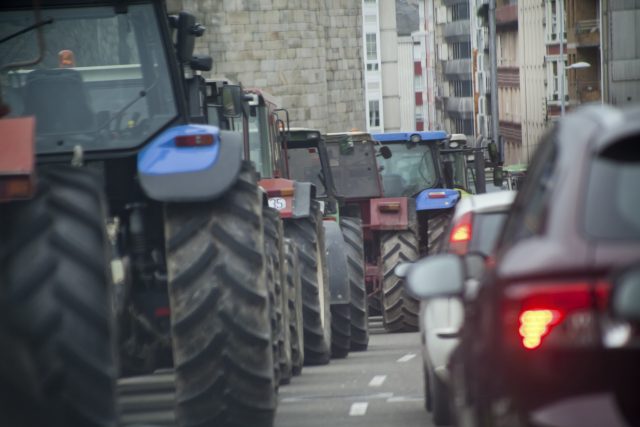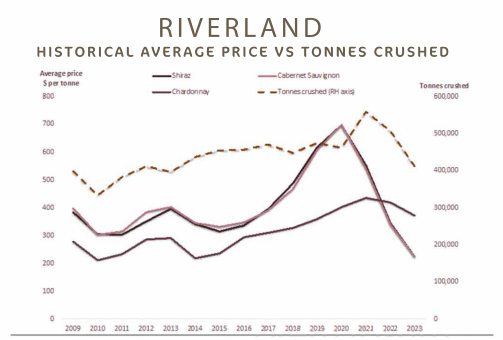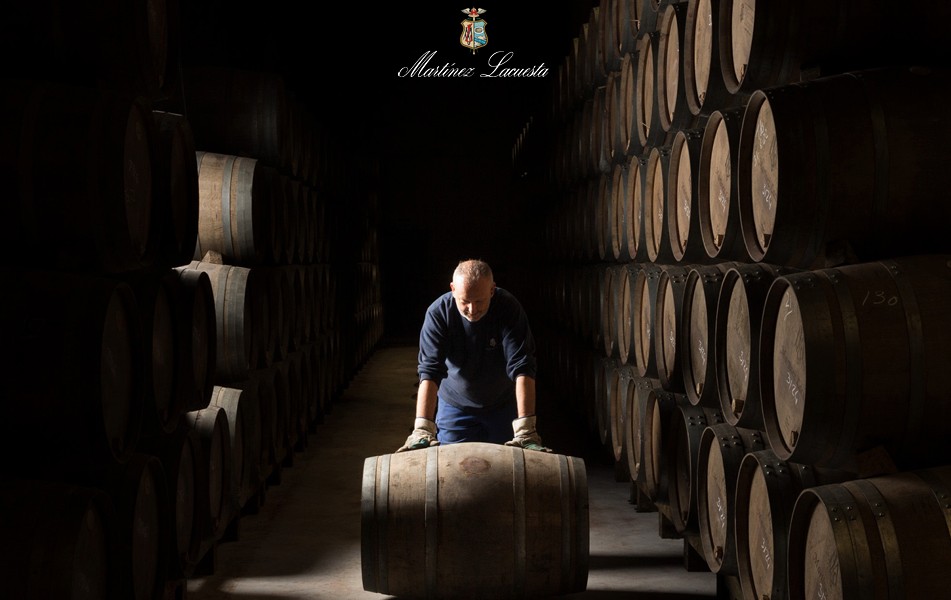Riverland producers park tractors in protest over grape prices
Grape growers from South Australia’s Riverland lined the streets of the town of Renmark with their agricultural vehicles to express their concerns for the future of the region’s wine industry.

The protest, which took place on Wednesday, involved a convoy of tractors and trucks driving through Renmark, which is on the banks of the Murray River, and parking their vehicles to block traffic.
ABC News reported that the demonstration was organised by third-generation grape grower Sava Giahgias, who is worried that grape growing is becoming increasingly unsustainable and may lead to a “collapse” of viticulture, and the livelihoods that depend on it: “This is what I love doing and I want to keep doing it, but at these prices we can’t keep doing it.”
“The Riverland is going to collapse if this is not happening,” Giahgias argued. “Us farmers are the Riverland. We are the food bowl.”
According to Riverland Wine, the region’s 2023 harvest provided a third (34%) of Australia’s annual crush.
The key issue the protestors are concerned with is plummeting grape prices. Australia’s wine industry has been blighted in recent years by a huge surplus of wine, partly a consequence of the punitive tariffs China imposed on Australian wine (though a dispute ceasefire has been declared). Another factor has been the dramatic decline in red wine consumption. Some estimates place the surplus at around 2.8 billion bottles, and given that the 2024 harvest is already well underway, that figure seems set to only increase.
Partner Content
An enormous supply combined with a severely reduced demand has wrought havoc upon growers, driving the prices they get for their grapes, especially for red varieties, down. From 2020 the average price Riverland producers were paid took a sharp downward turn from around AU$700 (£360) per tonne of Cabernet Sauvignon and Shiraz to around AU$200 (£100). The price per tonne of Chardonnay remained relatively stable.

The surplus proved so bad that ahead of the 2023 harvest, Accolade Wines, the biggest buyer of Riverland’s grapes, wrote to CCW (a cooperative of 530 growers) to say that producers would be paid AU$1,000 (£500) per hectare for mothballing vineyards and not providing grapes, or AU$1,250 (£640) for each hectare of red grapes it replaced with white ones, according to ABC News. According to Riverland Wine, between 2022 and 2023, the average price paid for red grapes overall fell by 31% to AU$254 (£130), the lowest figure for 30 years.
“Growers cannot grow grapes for a third of the cost of production,” Giahgias said. “It’s time that we are not treated like peasants, and that we are treated like business people.”
Around 95% of Riverland’s grapes go into wines that cost less than AU$10 (£5) a bottle.
It is understood that prices paid for grapes from the 2024 harvest have not been disclosed yet. db has reached out to Accolade Wines, which has just been taken over, asking for its response to the protest.
In response to the severe challenges the industry is facing, Australian wine could be set for dramatic change in the immediate future.
Related news
ASC Fine Wines and Vinarchy strike exclusive distribution deal
Wynns John Riddoch: representing the ‘ultimate selection’
Tasmanian baijiu: 'Even if it sucks, it's something to laugh about'




